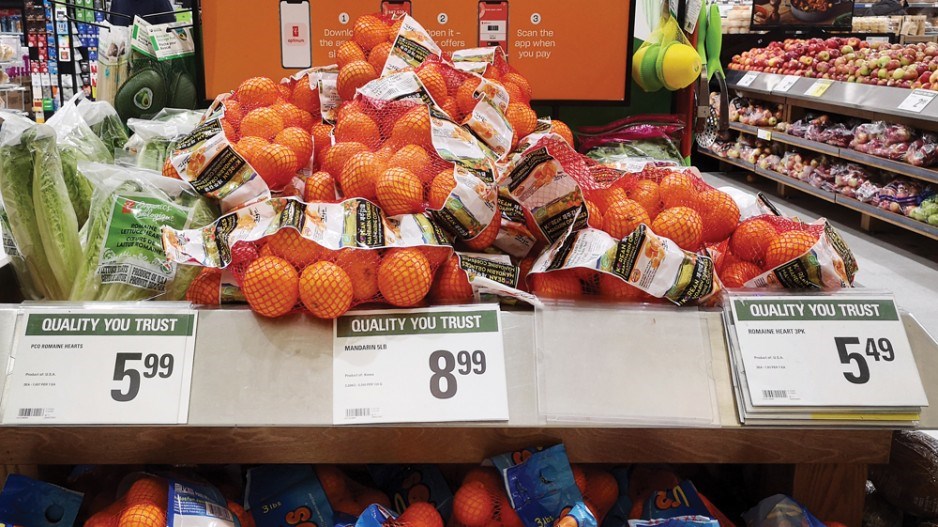Inflation showed more signs of easing on the West Coast last month, growing at an annual rate of 6.2 per cent compared with 6.6 per cent in December.
January also marked the seventh straight month B.C. outpaced the nation’s rate of inflation (5.9 percent), according to Statistics Canada data released Tuesday.
The national rate of inflation also declined month to month (6.2 per cent in December) as the Bank of Canada hiked its key rate once again at the end of January in a bid to tamp down on rapidly rising prices.
But Bank of Canada governor Tiff Macklem has indicated the central bank would be tapping the brakes on rate hikes for the time being.
"This milder report will provide the BoC with some comfort on their decision to move to a conditional pause, acting as a strong antidote to the run of robust growth figures seen in recent weeks," BMO chief economist Douglas Porter said in a note.
TD Bank economist Rishi Sondhi said in a December 2022 note that B.C. and Ontario can expect inflation to be “more persistent” in 2023 as they continue to deal with high housing costs even as the price of homes take a hit.
Despite signs of inflation easing across a broad range of categories, food prices, including both groceries and food at restaurants, grew 10. 4 per cent in January compared with 10.1 per cent growth a month earlier.
Gains on a national level were led by chicken (+nine per cent), bakery products (+15.5 per cent), dairy products (+12.4 per cent) and fresh vegetables (+14.7 per cent).
Prices on restaurant menus grew 8.2 per cent compared with 7.7 per cent a month earlier.
Those in the market for a new passenger vehicle paid 6.2 per cent more in January following a 7.2 per cent increase in December.
Cellular service prices declined 7.9 per cent annually last month following a 2.5 per cent increase in December. Statistics Canada attributed this to some Boxing Day sales carrying on into 2023.
“The deceleration in CPI [consumer price index] adds to evidence that the Bank of Canada doesn't need to engineer a recession to get inflation under control,” CIBC senior economist Andrew Grantham said in a note.
“Headline inflation should ease below three per cent by May, although continued strength in food prices and mortgage interest costs will likely keep the annual pace sticky between two to three per cent throughout the second half of the year. That supports our call for no further interest rate hikes, but also no cuts until early 2024.”




